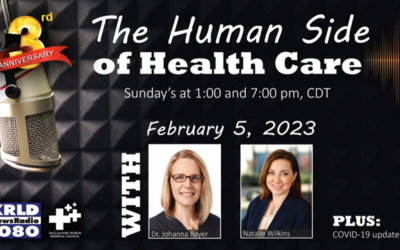Call 214-941-7200
Updates From Our Office
At Kessler Women’s Healthcare in Dallas, TX, we offer comprehensive obstetrical and gynecological care for patients of all ages and needs. Whether you’re seeking prenatal care, contraception, breast health exams, or anything in between—we have the experience and dedication you need! See our blog below for information and updates from our office!
FAQ
What should I do to optimize my health before trying to become pregnant?
If you are planning to become pregnant, be sure to take a prenatal vitamin daily and avoid alcohol and other substances, including tobacco. Set up an appointment with our office to review your prior medical conditions and any medications you are currently taking. You should try to optimize chronic medical conditions like blood pressure and diabetes in collaboration with your primary care doctor and Kessler OBGyn physician. Also, maintaining a healthy lifestyle, including diet and exercise for a healthy weight, can improve pregnancy outcomes. Sometimes, though, pregnancy is a surprise, and we at Kessler Women’s Healthcare want to help you have the healthiest pregnancy possible for you and your baby. Call our office today to schedule an appointment to discuss further if you are planning a pregnancy or are already pregnant.
How can I manage nausea in pregnancy?
What birth control method is best for me?
There are many birth control options available. Ranging from daily pills to long-acting reversible methods like IUDs (intrauterine devices), your lifestyle and family planning goals can guide your decision to use one specific method. Certain medical conditions may affect what option is best for you. Call our office today to schedule an appointment with a doctor to explore your options.
How can I manage painful and heavy periods?
What does it mean to have an abnormal Pap smear or abnormal HPV testing?
A Pap smear detects cells that may be affected by infection or inflammation. The most common cause of an abnormal Pap smear is an HPV infection. Having an abnormal Pap smear happens to about 1 in every 20 women, and having a positive HPV test happens to about 1 in every 5 women. An abnormal Pap smear is not a diagnosis of cervical cancer, but may require further testing like a colposcopy exam (looking at the cervix through a high-powered camera for abnormal areas) or a cervical procedure like a LEEP or cone biopsy (removing part of the cervix that has abnormal cells). Pap smears and HPV tests are very important for the detection of precancerous cells and the prevention of cervical cancer. All women after age 21 should have this testing regularly. Call our office today to set up an appointment with your doctor to discuss this further.
What should I expect when going through menopause?
The menopausal transition looks different for every woman, but there are some common symptoms that you may experience. Menopause officially begins when the menstrual cycle has stopped for a full year. The average age for menopause to occur in the US is 51, but can range from mid-40s to mid-50s. Any bleeding after menopause has begun is not normal and should be evaluated by an ObGyn doctor. Hot flashes are one of the most talked about symptoms, but other symptoms can include difficulty sleeping, mood changes, and vaginal dryness. There are a variety of medical treatments available for bothersome symptoms that your doctor can offer, depending on your specific concerns and medical history. Call our office to schedule an appointment with a doctor to discuss this further.
How can I tell the difference between a UTI, yeast infection, or bacterial infection of the vagina?
What are some good books to read if I am pregnant or considering pregnancy?
There’s a lot of information out there, but we like a couple of books in particular. One is an oldie, but a goodie…What to Expect When You Are Expecting. The other series is the 411 series (Expecting 411, Baby 411, and Toddler 411). These books will help you successfully conquer pregnancy, delivery, and the first few years of your child’s life!
What is a good resource to prepare me for the changes associated with menopause?
In today’s world, how can I help to protect my (and my family’s) rights to making decisions about my body with my doctor?
When should I start a prenatal vitamin?
What vaccinations should I get before or during pregnancy?
Can I exercise while I’m pregnant?
Can I eat seafood when I’m pregnant?
What over the counter medications are ok to take in pregnancy?
There are several medications that are ok to take in pregnancy without consulting your doctor. Always take medications as directed on the product label unless instructed otherwise.
- Headaches, minor pains, fever: Tylenol or extra strength Tylenol (acetaminophen), do not take aspirin, and avoid ibuprofen if possible especially in the last two months of pregnancy
- Nausea: unisom and vitamin B6
- Sore throat: over the counter lozenges (however be sure to contact your doctor’s office for COVID testing if you are concerned about a COVID infection)
- Constipation: Metamucil, colace, or milk of magnesia
- Heartburn: maalox, tums, rolaids
- Cough: robitussin (as above, be sure to contact your doctor if you are concerned about a COVID infection)
- Hemorrhoids: preparation H, colace
Allergies/itching: Benadryl, Zyrtec, Claritin
Is it normal to feel down after having my baby?
I am having trouble breastfeeding, where can I seek help?
My pelvic pain affects my daily life. How can I get help?
When do I need to start breast cancer screening?
What is cervical cancer screening and when do I need to start?
Patient Education
- Office Policy Update – Coronavirus / COVID-19 Response
- Baby Friendly-USA
- Breastfeeding Your Baby
- Cord Blood BANKING
- Da Vinci Surgery
- Hormone Therapy
- How to Tell When Labor Begins
- Human Papillomavirus (HPV) Infection and Vaccine
- Labor Analgesia
- New Guidelines for Cervical Cancer Screening
- Neonatal Circumcision
- Nonmedical Use of Obstetric Ultrasonography
- North American Menopause Society
- Power Morcellation and Occult Malignancy in Gynecologic Surgery
- Preparing for Surgery
- The Role of the Fallopian Tube in the Origin of Ovarian Cancer
- Safe Prevention of the Primary Cesarean Delivery
- Screening for Breast Problems
- Vaginal Birth After Cesarean Delivery
- Your Sexual Health and How to Prevent STD
- No More
Blog
Pride Month 2023
As we close out Pride Month 2023 the docs and staff of Kessler Women’s Healthcare want to acknowledge the struggles of our LGBTQ+ communities, especially in the state of Texas where laws are being enacted to restrict the medical care that trans youth are able to...
Juneteenth
Kessler Women's Healthcare will be open on Juneteenth to continue to serve our diverse community of patients. Our staff will be wearing red to celebrate resilience and freedom. As Smithsonian National Museum of African American History and Culture museum specialist...
National Women’s Health Week
Happy National Women's Health Week! For us at Kessler Women's Healthcare, every week is women's health week. But of course, we will also accept a national week of awareness! We would like to take this opportunity to highlight the importance of prioritizing...
Beat Morning Sickness
One of the most common symptoms in early pregnancy is nausea and vomiting, and contrary to the term "morning sickness" it can occur at any time of day. Read the story in Shine Magazine below for some helpful tips to alleviate your discomfort. If you think you need...
Foods to eat (and what to avoid) to boost your fertility
Patients often ask "which prenatal vitamin is the best?" The answer is -- whichever vitamin you will take consistently! It is important to take a prenatal vitamin while trying to conceive. Read the story in Shine Magazine with input from Dr. Knickerbocker regarding...
This is what advocacy looks like.
This is what advocacy looks like. I've spent the last few days away from patients and family to do this hard, but inspiring work. Those of you who know me know I never wear my white coat so this must be serious. Plus, check out the shoes! Walking from house offices...
Black History Month
As we close out Black History Month I want to recognize and honor a few of the important Granny Midwives in our nation's history. Black Women are so often overlooked for their roles in history. For many black pregnant patients Granny Midwives were their best source of...
Human Side of Health Care
In February we always think of hearts, but usually the romantic kind! Did you know that the American Heart Association also celebrates American Heart Month every February? Just in time for this celebration, Dr Theresa Patton recently did an interview with Stephen...
Baby Arrival Reveals Heart Disease
We all worry about breast cancer and ovarian cancer as women, but the number one killer for us in the US remains heart disease. Pregnancy affords us the opportunity to have frequent contact with healthcare providers and a unique circumstance for cardiovascular...
Patient Letter Shooting
Dear Kessler Women’s Healthcare Patient- Several of your Kessler Docs were present on the Mother Baby and Labor and Delivery units at Methodist Dallas Medical Center in the immediate aftermath of the October 22nd horrific shooting resulting in the loss of two of our...

Kessler Women's Healthcare, P.A.
1330 N Beckley Ave
Dallas, TX 75203
Phone: 214-941-7200
Monday 8:00 A.M. – 6:00 P.M.
Tuesday 8:00 A.M. – 6:00 P.M.
Wednesday 7:00 A.M. – 6:00 P.M.
Thursday 8:00 A.M. – 6:00 P.M.
Friday 7:00 A.M. – 5:00 P.M.
Saturday & Sunday Closed








